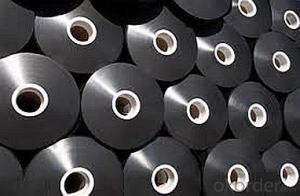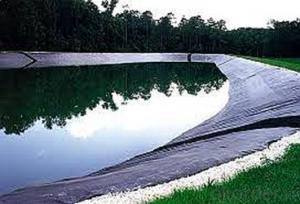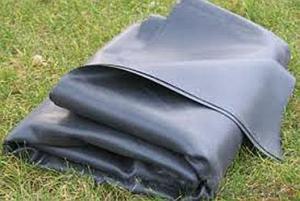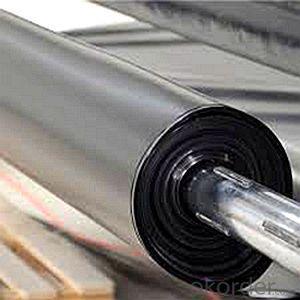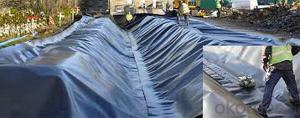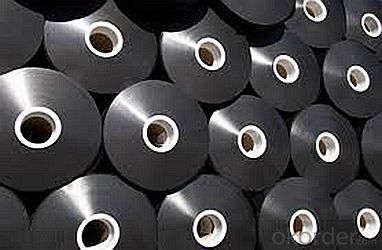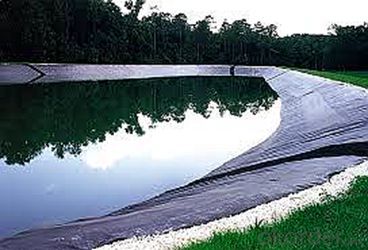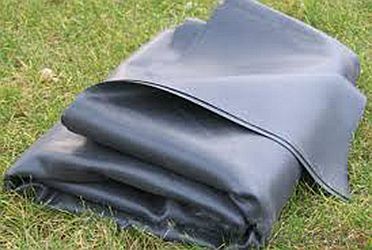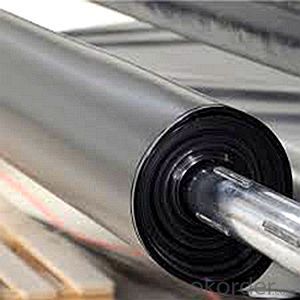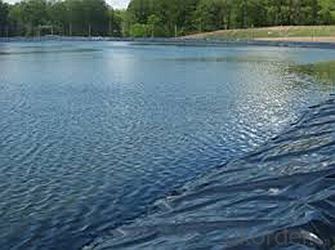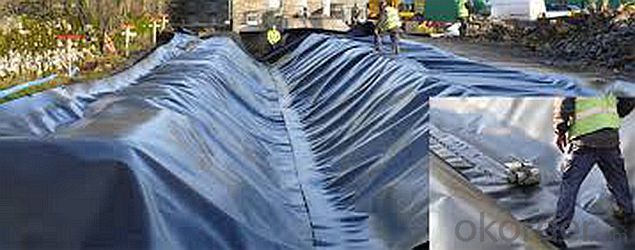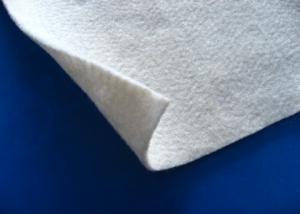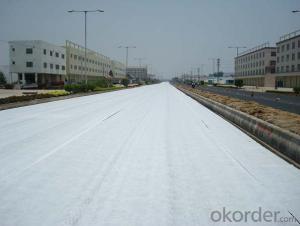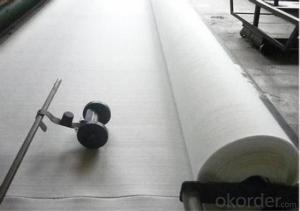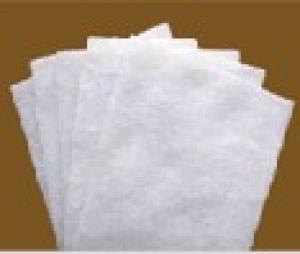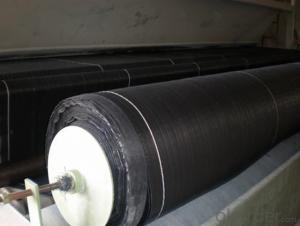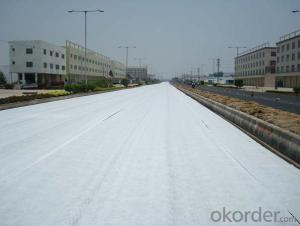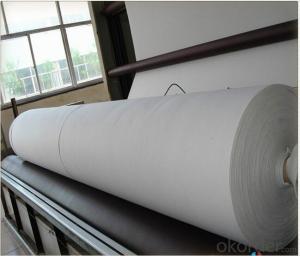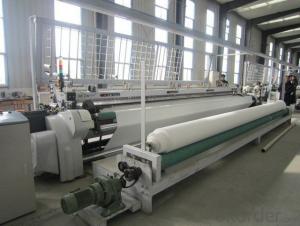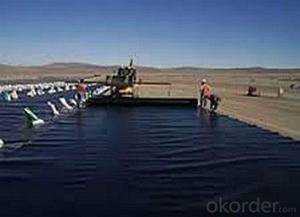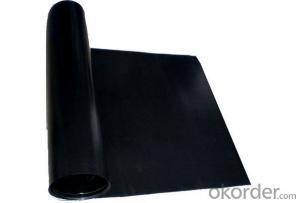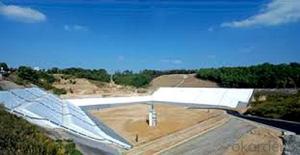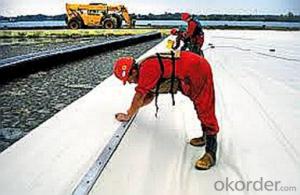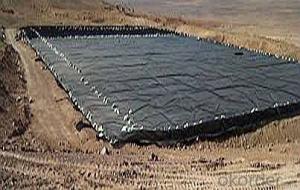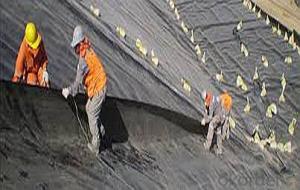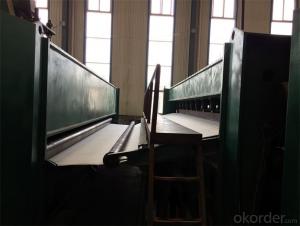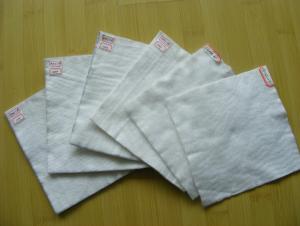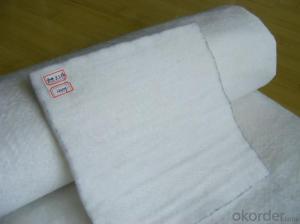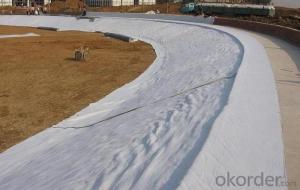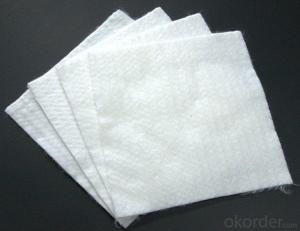High-Density Polyethylene Geomembrane for Waste Liquid - Geotextile Membrane Specification
- Loading Port:
- China main port
- Payment Terms:
- TT OR LC
- Min Order Qty:
- 1000 m²
- Supply Capability:
- 1000000 m²/month
OKorder Service Pledge
OKorder Financial Service
You Might Also Like
Specification
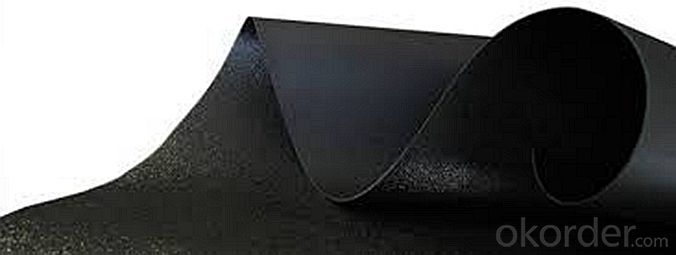
Geomembrane Liners are impermeable membranes used widely as containment liners, pond liners, landfill liners and more. Made in a wide range of sizes from a wide range of material options, these liners are the perfect way to prevent liquids from causing contamination in your location.
serves
Feature:
1. Corrosion resistance, aging resistance, puncture resistance
2. Repairable and recyclable
3. Very low permeability and good flexibility
4. Smooth, UV resistance and no toxic
5. Excellent environmental stress cracking resistance property
6. High tensile strength and elongation
1.On a regular basis or as per your request,we entrust national testing agencies to conduct quality inspections
2. Strictly in accordance with the ISO9001-2008 international quality system standard,we monitor and manage the whole process throughout production,quality testing,and measurement to ensure product quality
3. For quality-related construction delay or substandard construction(except for damage or losses due to customer’s responsibility or irresistible natural disasters),we have refunding,replacement,and repair services.We will respond to customers’ feedbacks on quality issues within 24 hours.
Packaging & Shipping
Packing: PLASTIC FILM INSIDE, AND WOVEN BAG OUTSIDE
Shipping: About 15 days after receipt the deposit
geotextile fabric
permeability,filtration,easy for construction
ISO and CE certificate
Good quality and competitive price
Our Service
FAQ:
Q: What kind of payments does jenor support?
A: T/T, L/C, Cash are accepted.
Q: Do you charge for the samples?
A: Accordeing to our company policy, the samples are free, we only charge the freight fee. And we will return the freight fee during the next order.
Q: Can you produce according to customers' design?
A: Sure, we are professional manufacturer, OEM and ODM are both welcome.
Q: Do you have other products?
A: Yes, please check the pictures:
- Q: Can geotextiles be used in underground construction applications?
- Yes, geotextiles can be used in underground construction applications. Geotextiles are commonly used for various underground construction purposes such as soil stabilization, erosion control, filtration, and drainage. They provide reinforcement and separation between different layers of soil, preventing mixing and enhancing the overall stability of the construction.
- Q: Would like to know the product of the market
- Geotextile short wire geotextile, filament geotextile, polypropylene geotextile, the weight of 100g ~ 1000g per square meter range, different prices of different prices in a dollar to nine yuan range, according to the type of raw materials and specifications
- Q: What are the quality control measures for geotextile manufacturing?
- Quality control measures for geotextile manufacturing typically include the following steps: 1. Raw material inspection: Thoroughly assessing the quality, specifications, and properties of the raw materials used in geotextile manufacturing, such as fibers and polymers. 2. Process control: Implementing strict control over various manufacturing processes, including extrusion, weaving or non-woven production, and coating, to ensure consistency, accuracy, and adherence to specifications. 3. In-line testing: Conducting regular tests and inspections during the manufacturing process to monitor key parameters such as weight, thickness, tensile strength, porosity, and permeability. 4. Sample testing: Randomly selecting samples from each batch and subjecting them to comprehensive laboratory tests to verify compliance with industry standards and project requirements. 5. Quality audits: Conducting periodic audits of the manufacturing facility to assess the overall quality management system, equipment calibration, personnel training, and adherence to standard operating procedures. 6. Final product inspection: Thoroughly examining finished geotextile rolls or panels for any defects, such as tears, holes, or inconsistencies in physical properties, before packaging and shipping. 7. Documentation and traceability: Maintaining detailed records of all quality control activities, including test results, inspection reports, and batch numbers, to ensure traceability and facilitate recalls if necessary. By implementing these quality control measures, geotextile manufacturers can consistently produce high-quality products that meet the performance requirements and specifications of various geotechnical applications.
- Q: What are the different factors to consider for geotextile selection in agricultural applications?
- When selecting geotextiles for agricultural applications, several factors need to be considered. These factors include the type and level of soil erosion, the desired drainage and filtration requirements, the expected load and stress levels on the geotextile, the potential for chemical exposure, the climate and weather conditions, and the longevity and durability needed for the specific agricultural application.
- Q: How do geotextiles improve soil stability?
- Geotextiles improve soil stability by providing reinforcement and separation. They prevent soil erosion, retain moisture, and distribute loads, ultimately enhancing the overall strength and stability of the soil.
- Q: What is the meaning of the geotextile What is its working principle
- Hot geotextile cloth is to isolate the heat and cover a layer of geotextile material. Advantages: light weight, the overall continuity is good, high tensile strength, corrosion resistance, anti-microbial erosion is good, easy construction. Non-woven geotextile properties: small pore diameter, good permeability, soft texture, and soil with a good combination. 2, construction (1) according to the embankment or base wide full section laying. (2) leave sufficient anchorage length on each side of the embankment or substrate. (3) To ensure integrity, when the lap method is continuous, the lap length should be 0.3 ~ 0.5m. When the seam is connected, the bond width is not less than 50mm. (4) site construction, material damage must be immediately repaired. Upper and lower seams should be alternately staggered, staggered length of not less than 0.5m. (5) try to avoid prolonged exposure.
- Q: What is the effect of tunnel geotextile failure on tunnel quality
- My company specializes in the production of geotechnical materials, treat people with sincerity to ensure your satisfaction.
- Q: What are the different geotextile permeability testing methods?
- There are several different geotextile permeability testing methods, including the constant head method, falling head method, and gradient ratio method.
- Q: Is it possible to isolate permeated geotextiles and impervious geotextiles?
- Geotextile is permeable, and water, but the soil, from the filter effect, impermeable geotextile is geomembrane composite geotextile composite products, is impermeable and waterproof, I am specializing in the production of geotechnical materials,
- Q: Can geotextiles be used for filtration of contaminants in water?
- Yes, geotextiles can be used for filtration of contaminants in water. Geotextiles are permeable fabrics that can effectively filter out suspended particles, sediments, and pollutants from water. They are commonly used in various applications such as wastewater treatment, erosion control, and geotechnical engineering to improve water quality by removing contaminants through filtration.
Send your message to us
High-Density Polyethylene Geomembrane for Waste Liquid - Geotextile Membrane Specification
- Loading Port:
- China main port
- Payment Terms:
- TT OR LC
- Min Order Qty:
- 1000 m²
- Supply Capability:
- 1000000 m²/month
OKorder Service Pledge
OKorder Financial Service
Similar products
Hot products
Hot Searches
Related keywords
